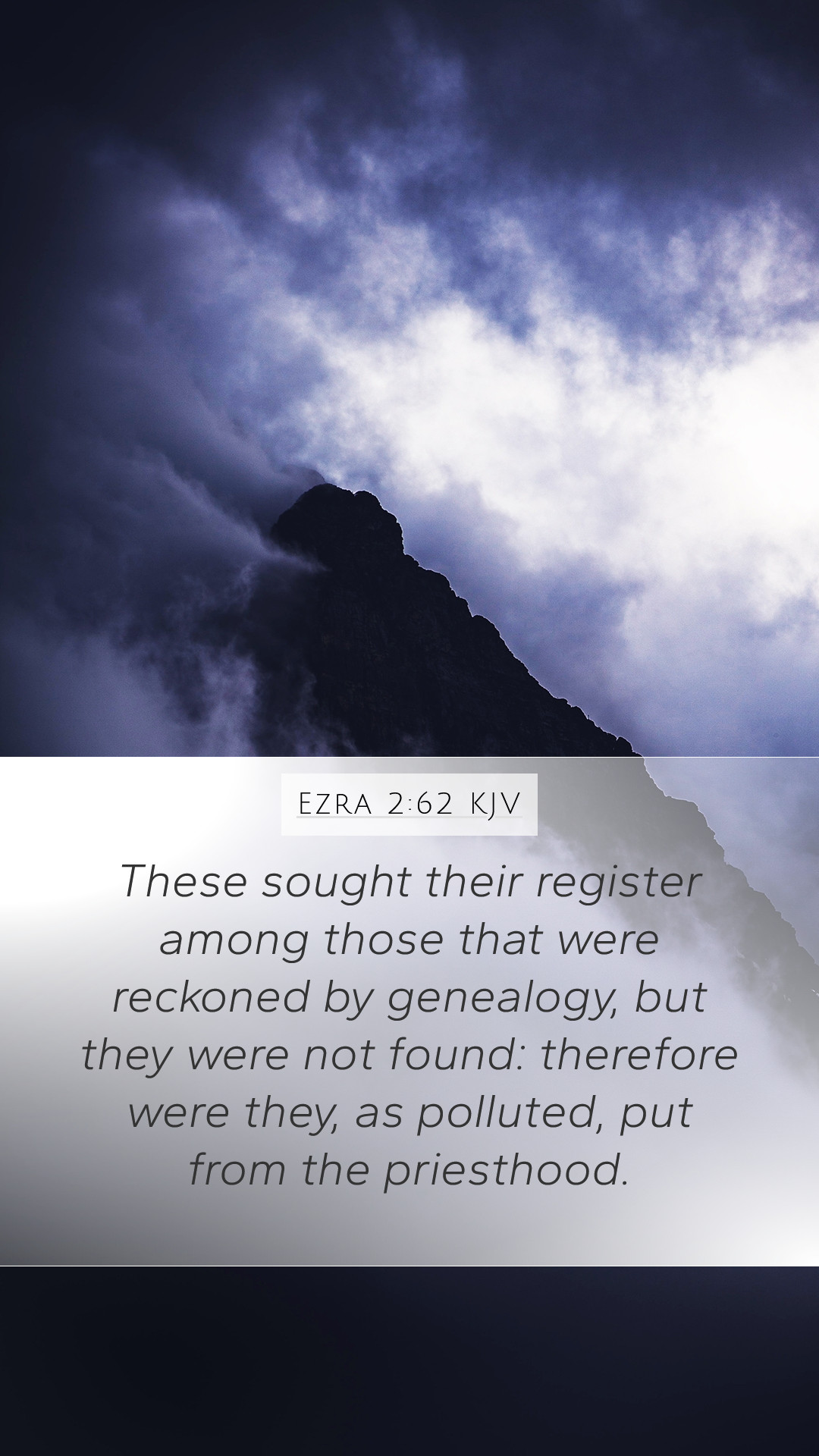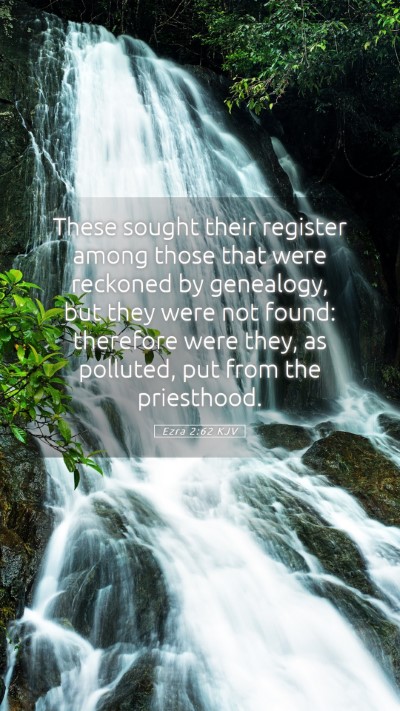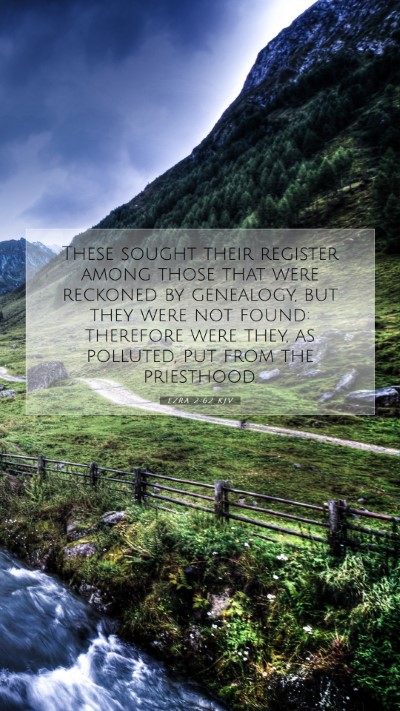Bible Verse Meaning: Ezra 2:62
In Ezra 2:62, we find a verse that speaks to the significant theme of identity and belonging among the returning exiles from Babylon. This verse lists individuals who could not prove their genealogy, highlighting the importance of lineage and heritage in the covenant community of Israel.
Summary of Ezra 2:62
The verse states, “These sought their register among those that were reckoned by genealogy, but it was not found; therefore were they, as polluted, put from the priesthood.” Here, we gain insight into the challenges faced by the returning Jewish exiles in reestablishing their community and worship practices.
Key Themes and Insights
-
Genealogical Significance:
The importance of genealogy in Israelite culture is underscored. Those who could not produce a family record were unable to fully return to their roles within the priesthood, indicating the significance of lineage for religious identity and authority.
-
Purity and Exclusion:
The term "polluted" reflects the concept of ritual purity in the priesthood. Those without an established genealogy were viewed as unclean or unsuitable to serve, emphasizing the religious requirements for leadership and participation in sacred duties.
-
Restoration of Worship:
This verse occurs in the context of rebuilding the temple and restoring worship after exile. The exiles’ concern for proper order and adherence to their tradition is evident, illustrating the deep desire for reinstating their covenant relationship with God.
Commentary Insights
Insights from Matthew Henry
Henry notes that the meticulous record of genealogies serves to remind the people of God's faithfulness throughout generations. It establishes continuity between the past and the present, reinforcing the identity of the people as God’s chosen ones.
Insights from Albert Barnes
Barnes highlights that the inability to provide a genealogical record reflects broader themes of rejection and belonging. It suggests that God’s covenant is exclusive, prioritizing those who meet the official requirements for participation in religious life.
Insights from Adam Clarke
Clarke interprets this passage to emphasize the seriousness of maintaining proper religious standards. He points out that while the physical return to Jerusalem is a sign of hope, the spiritual and ceremonial aspects must also be attended to, ensuring that worship is conducted according to God’s prescription.
Cross References
- Nehemiah 7:64 - Discusses the same issue of genealogical authentication.
- Ezra 2:1 - Presents the entire list of those returning to Judah.
- Leviticus 21:17-21 - Outlines the qualifications for priests regarding lineage.
Application and Reflection
Understanding this verse prompts critical reflections on our own spiritual identity and connection to God. In contemporary application, it encourages believers to consider what it means to belong to God’s family and the importance of spiritual heritage.
As Bible study groups explore these themes, they can delve into how identity plays a role in their communities today. Utilizing online Bible study tools, participants can facilitate discussions surrounding the implications of lineage and purity in our spiritual journeys.
Conclusion
Ezra 2:62 serves as more than a historical record; it challenges believers to understand their place within the community of faith, emphasizing the need for authenticity in our relationship with God and each other. Through careful examination of this verse and its implications, one can derive vital insights for spiritual growth and understanding of Scripture.


